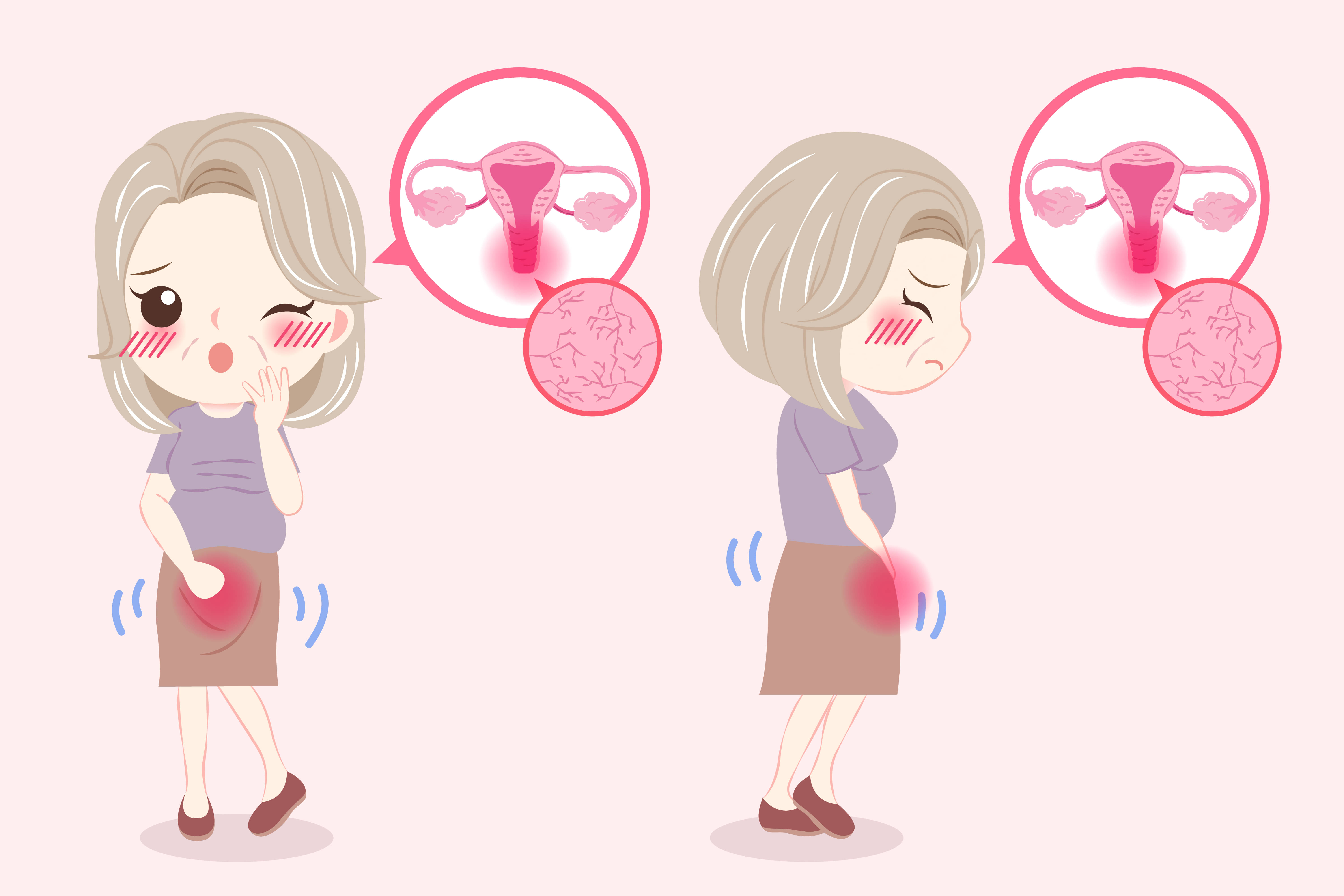Vaginitis: Treatment, Procedure, Cost and Side Effects
Last Updated: Jul 20, 2021
What is Vaginitis?
Vaginitis is a condition that occurs due to an inflammation or infection in the vagina. It often leads to itching and pain in the vagina, discharge and odor, even pain during urination and sexual intercourse. The common causes of vaginitis include bacterial infection, yeast and Trichomonas.
Bacterial vaginosis is considered the most common bacterial infection which is caused due to an imbalance in the bacteria present in your vagina. Vaginitis may also result from non-infectious physical or chemical inflammation.
What are the types of vaginitis?
These are the different types of vaginitis:
- Bacterial vaginosis:
In this, there is an overgrowth of normal bacteria in the vagina which interrupts the natural balance of the body. It can affect women of any age but most women who are in their reproductive years get this.
- Candida or yeast infection:
In this fungal infection in the vagina is caused by the yeast and is known as vaginal thrush.
- Trichomoniasis:
This is a sexually transmitted by a single-celled protozoan parasite known as protozoan parasite Trichomonas vaginalis. It can infect the urogenital tract, including the urethra.
- Atrophic vaginitis:
In this lining of the vagina gets thinner due to the decrease in the estrogen level in the body during the time of menopause. This also leads to irritation and inflammation.
What are the symptoms of vaginitis?
The symptoms of vaginitis are as follows:
- Pain at the time of sexual intercourse
- Discomfort or pain during urinating
- Infection of the genital area
- Discharge of watery, white or foamy liquid from vagina
- Redness
- Inflammation and swelling of the perineal area
- labia majora
- labia minora
- Due to the excessive immune cell.
Will Vaginitis go away on its own?
Vaginitis caused by bacteria with mild manifestations can clear up on its own within a few days. However, if there are symptoms present such as pain, pain during sexual intercourse, burning pain while urinating, vaginal discharge, and vaginal odour, it is best to get treated medically as it makes the body susceptible to STDs as well as affect pregnancy.
Infectious vaginitis is treated with antibiotics (oral, intravenous, or topical administration), the treatment goes for about one week. During the course of the treatment, it is highly recommended to not discontinue the medication as it makes the infection worse.
Is Vaginitis an STD?
Vaginitis is a medical umbrella term for all vaginal infections caused by bacteria, yeast, or sexual intercourse. Thus, not all infections or inflammations can be categorized into STD as they are sexually transmitted, however, they are linked to sexual encounters. This is due to the change in the vaginal environment which makes adaptation of microbes easier in the vagina, thus leading to Vaginitis.
Additionally, not all vaginitis is caused by STD but the STD can lead to Vaginitides such as Gonorrhoea and Chlamydia are the causes of vaginitis due to STD.
Is Vaginitis contagious?
Vaginitis is an umbrella term for various kinds of vaginal disorders such as inflammation in the vagina or an infection. It is typically caused by a pathogen or chemical irritants. When the inflammation occurs on both the vagina and vulva, it is referred to as Vulvovaginitis.
Apart from microbes and chemical irritants, Vaginitis can also be caused by an intimate partner through the passage of microorganism, estrogen deficiency, and dryness in the vagina. Vaginitis does not spread from person to person, however, sexual encounters increase the risk of getting infected.
What causes vaginitis?
The most common cause of vaginitis is infection in the vagina which includes candidiasis, bacterial vaginosis, and trichomoniasis. The most crucial time for the occurrence of vaginitis is puberty and it happens for 90% of the time.
Different types of bacteria are involved during the infection. There can be many causes of vaginitis which include pregnancy, use of antibiotics, low level of estrogen, wearing tight clothes, using birth control devices, women having diabetes.
How is Vaginitis Transmitted?
Vagina has both good and bad bacteria present in it but when the balance between the good and bad bacteria gets upset bad bacteria starts growing very fast which then causes infection. Thus when the infection spreads and the number of bad bacteria increases and which can get transmitted by sexual activities.
How is vaginitis diagnosed?
Diagnosis of vaginitis usually involves the following steps:
- The doctor may want to review your medical history to look for any vaginal or sexually transmitted infection
- The doctor would perform a pelvic exam to detect any sort of inflammation or discharge from the vagina.
- A sample of vaginal discharge is collected for lab testing in order to confirm the condition.
- Very often a pH paper or stick is placed on the wall of your vagina to examine the vaginal pH.
Treatment of vaginitis depends on its causes and symptoms.
How is vaginitis treated?
The treatment for this condition depends on the causes and types of vaginitis. Bacterial Vaginosis (BV), the most common bacteria present in your vagina, can be treated with antibacterial and antifungal medicines and drugs like metronidazole or clindamycin. The doctor usually prescribes these to women who show symptoms of BV. During the course of this treatment women are advised not to make sexual intercourse.
Medicines and gels like tropical creams, fluconazole, miconazole etc are exclusively made to treat yeast infections. Sexually transmitted infections such as Trichomoniasis can be cured with a single dose of antibiotic medicine. In order to stop the infection from spreading and keep it away, both the partners (male and female) need to undergo this treatment. Estrogen is very effective in curing vaginal atrophy.
Other ways of treating this condition includes: cortisone cream to cure irritation in the vagina; if the inflammation results from an allergic reaction antihistamines are used.
Vaginitis Medications:
The medication for vaginitis includes:
- Antibiotic medication: Ceftriaxone (Rocephin), Erythromycin, Metronidazole (Flagyl), Clindamycin (Cleocin), Cefixime (Suprax), Doxycycline (Doryx), and Azithromycin (Zithramax).
- Antifungal medication: These medications are used for the prevention of yeast infection antifungal medications include Fluconazole, Terconazole (Terazol), Clotrimazole (Gyne-Lotrimin), Miconazole (Monistat), Butoconazole (Gynazole), and Nystatin.
What are the risk factors for vaginitis?
Risk factor for vaginitis are:
- Sexual activity
- Douching
- Medication including antibiotics and steroid
- Having any kind of sexually transmitted disease
- Wearing damp or tight clothes
- Controlled diabetes
- Hormonal changes in the body at the time of pregnancy and menopause
- Using any birth control device
Are there any side effects?
What are the post-treatment guidelines?
Post treatment guidelines include: following a good hygiene, washing and cleaning your vagina and the surrounding region with a mild soap in order to prevent infections, wearing clean and loose clothing, using necessary antibiotics as prescribed, practicing safe sex, and consumption of antioxidant food and drinks.
How long does it take to recover?
Although the complete course for the treatment may take 7days, bacterial vaginosis normally takes 2-3 days to cure with the help of antibiotic medicines. During this period the patient is advised to carry on with the prescribed medication even if the condition shows signs of improvement.
What is the price of the treatment in India?
Can vaginitis be prevented?
Yes, vaginitis can be prevented by practicing safe sex or abstinence but most of the time all the yeast infections cannot be prevented. Vaginitis can also be prevented by practising hygiene and keeping your vagina clean.
How to cure vaginitis?
Treatment of vaginitis depends upon the cause of it and it includes low potency of topical steroids which is applied on the skin, oral antibiotics, topical antibiotics, antibacterial cream, anti-fungal creams. Bacterial vaginosis is most of the time cured with the help of antibiotic which includes metronidazole (Flagyl), or clindamycin.
How to treat vaginitis naturally?
These are things which help in treating vaginitis naturally:
- Yogurt
- Probiotics
- Garlic
- Hydrogen peroxide
- Tea tree oil
- Cotton underwear
- Boric acid
- Having safe sex
- No douche
- Practicing hygiene
Table of content
15+ Years of Surgical Experience
All Insurances Accepted
EMI Facility Available at 0% Rate
Find Gynaecologist near me
Ask a free question
Get FREE multiple opinions from Doctors


